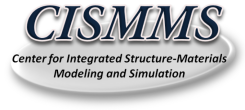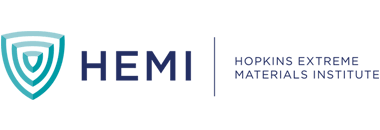FINAL REPORT
The aim of this 2-day thematic workshop is to bring together prominent scholars in solid and structural mechanics, materials science, and applied mathematics with a shared interest in uncertainty quantification and computational material modeling to exhibit the state-of-the-art, collectively identify existing and future challenges, and promote promising new ideas in the field. The workshop will focus on understanding and quantifying uncertainties in material structure and behavior and propagating these uncertainties through computational material models. This theme encapsulates uncertainty in material performance at and across all length-scales – from atomistic to structural scale – with interest in performance across diverse structural materials ranging from concrete to metals, composites, ceramics, glasses and many others. Emphasis will be placed on bring together experts in UQ with experts in mechanics/materials who recognize the need for UQ and the challenges associated with its implementation.
Topics of interest include but are not limited to:
• Stochastic simulation of heterogeneous material structures
• Data-driven (Bayesian / machine learning) approaches to quantifying uncertainty in material structure/performance
• Mechanics and materials science applications where uncertainties are important
• Mathematical challenges of bridging length-scales
• Uncertainties in material (constitutive) model form and model validation under uncertainty
• Efficient methods for propagation of uncertainty in material systems
• Influence of random imperfections on material performance and failure
• Influence of uncertainty in boundary conditions and loading
• Computational homogenization – particularly for nonlinear inelastic material behavior
• Novel statistical and numerical methods for solving stochastic materials problems
The workshop will conclude with a discussion among the participants to collectively identify promising new directions in the field and and provide recommendations for where the field needs to go in the next 5, 10, 20 years and beyond.

